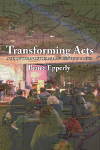In Defense of the Ordinary
In preparing for my Sunday School lesson tomorrow I read some very high sounding words about settling for less: pleasure rather than joy, vengeance rather than justice, sentiment rather than beauty, and so forth. The source was N. T. Wright, quoted in the introduction to the Cokesbury Adult Bible Studies Uniform Series for the Summer of 2016.
The idea is not bad. But it is an idea that is easily corruptible. A pursuit of right-doing is a good thing until it becomes perfectionism, judgmentalism, self-righteousness, disdain, or any of a number of other ways in which doing good can become obnoxious and destructive. A love of learning is wonderful as long as it drives one to learn more and make use of that learning. When it leads to a superior attitude or an inability to hear the wisdom that may come from one less learned, it’s not so great. Beauty may be in the eye of the beholder, but so is ugliness, at least when “ugly” is defined as “not living up to my personal standards of beauty.”
We often express shock at the disciples, who constantly asked who was greatest in the kingdom. Why didn’t they get it? But we do very much the same thing. Constantly. A pursuit of excellence can become a pursuit of “more-excellent-than-ness” and can also result in a narrowing of vision.

I was talking to my mother at the end of May, just after she turned 98. She mentioned to me the “sacred four” professions. We had a song in Sabbath School (this was the Seventh-day Adventist Church), and it went, using my name, “Henry can be a missionary doctor, a missionary doctor, a missionary doctor….” Or it could be teacher, nurse (for the girls, of course), and minister (meaning pastor/evangelist, for the boys). Those were the “great” vocations to pursue.
My mother said she added farmer, janitor, housewife, and so forth. I remember her doing that. She’ bring in tools for each trade, and we’d have a hoe or rake for the missionary farmer, broom for janitor, etc. These were considered ordinary professions, but could be vocations as well. Why talk to your child about being a farmer or a building custodian, or perhaps a garbage collector? Because each of those things is an important vocation, as are many, many more. The real question is whether the person doing them will do them to the best of their ability and be a witness while doing so.
And that is the question for the “important” professions as well. A seminary professor can be a missionary, but so can every other person out there.
But we want a comparison scale.
Now don’t get me wrong. I’m not against pursuing excellence. That’s a good thing. What I’m against is creating these hierarchies as to who and what is the more important thing. Does your pursuit of your concept of beauty mean that you can’t appreciate something simple? Does your pursuit of better theology mean you can’t listen with appreciation to a Sunday School class taught by someone who worked in the fields all week? Does your desire to hear the perfectly-formed, homiletically brilliant sermon mean that you can’t listen to a speaker who wasn’t trained in those things but has a real-life walk with God to testify to?
I would suggest that a healthy pursuit of excellence leaves one appreciating excellence wherever it is found, not just in one’s little corner. A pursuit of beauty leaves one appreciating beauty in a wide range of places, seeing more beauty than others because one has beauty in one’s eye.
I like the sentiments from N. T. Wright I noted at the beginning. We do lose when we accept vengeance in place of justice. We need to pursue justice. We need to pursue those great things. But we also need to recognize greatness everywhere. The clerk who rings up your groceries and does it well is absolutely a great person.


Love the perspective your post brings!